
Call for 2020-2022 Mentors and Collaborators
Innovate For Health invites faculty from UC Berkeley, UCSF, and Johnson and Johnson to work with the 2020-2022 cohort Data Science Health Innovation Fellows as Mentors and Collaborators. Faculty and researchers from a wide range of fields -- including theory, machine learning, natural language processing, computer vision, data science, applied statistics, medicine, and many others -- are encouraged to join the I4H community, to help our new fellows address the most important challenges currently being faced in the field of human healthcare
- Mentors from UC Berkeley, UCSF, and Johnson & Johnson will work with new I4H Fellows to identify an area of unmet need in human healthcare, for which they will design a research project to deliver novel solutions within the 2-year time frame of their fellowship
- Mentors and Fellows will discuss and agree upon an engagement plan that will ensure the success of the research projects, and according to their availability. Regular (and at least) monthly meetings between Fellow and Mentor are encouraged, and a quarterly virtual meeting with all mentors and Co-Directors (Berkeley, UCSF, and J&J) will be required.
2020-2022 Innovate For Health Cohort:
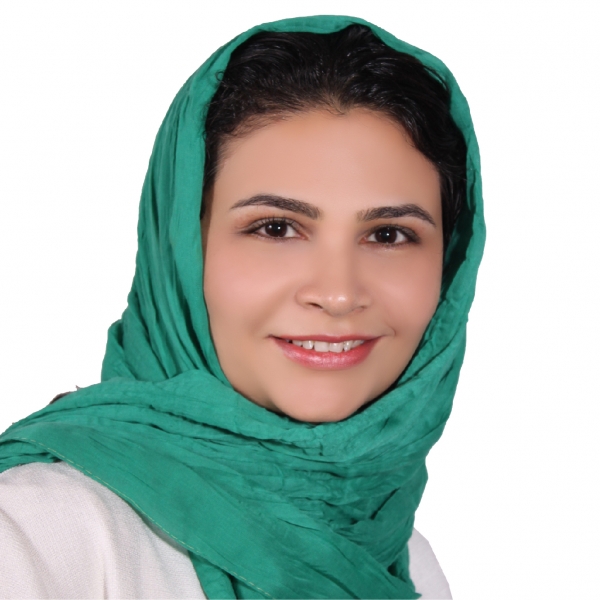 Dr. Akram Bayat received her Ph.D. in Computer Science from the University of Massachusetts Boston in 2018. Then, she worked as a postdoc associate at MIT Media Lab where her research focused on creating novel intersections between engineering, medical imaging, machine learning, and medicine to develop innovative high-impact patient-centered research. During her Ph.D. research, she worked on developing machine learning algorithms for solving real-world problems and conducted experimental studies for modeling of human physical and behavioral characteristics. Akram has significant expertise in applying deep learning for computer vision applications. Her recent work in computational staining of pathology images was mentioned at MIT News in May 2020. Primary area of quantitative expertise: Computer Vision; Applied domain: Medical; Data domain: Imaging
Dr. Akram Bayat received her Ph.D. in Computer Science from the University of Massachusetts Boston in 2018. Then, she worked as a postdoc associate at MIT Media Lab where her research focused on creating novel intersections between engineering, medical imaging, machine learning, and medicine to develop innovative high-impact patient-centered research. During her Ph.D. research, she worked on developing machine learning algorithms for solving real-world problems and conducted experimental studies for modeling of human physical and behavioral characteristics. Akram has significant expertise in applying deep learning for computer vision applications. Her recent work in computational staining of pathology images was mentioned at MIT News in May 2020. Primary area of quantitative expertise: Computer Vision; Applied domain: Medical; Data domain: Imaging
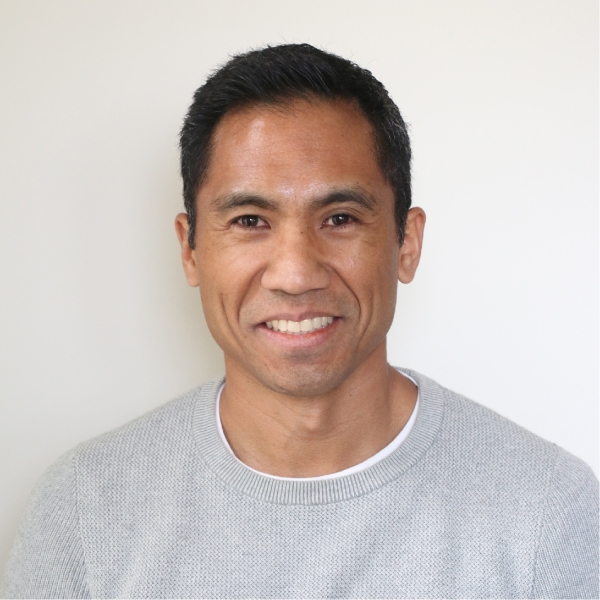 Dr. Benjamin Lacar earned his Ph.D. in neuroscience from Yale. His postdoctoral research at the Salk Institute was the first to report transcriptomes of activated single-neurons. He then joined Fluidigm to help develop genomics applications. His initial role included analyzing data for marketing and supporting collaborations. He then created analysis pipelines to facilitate method development as a bioinformatics scientist. Recently, he completed an Insight Data Science Fellowship where he identified schools and community features associated with low-income student success. As an Innovate for Health Fellow, he is interested in impacting healthcare, especially for underserved communities. He looks forward to discussing innovative approaches with the faculty, staff and fellows in the program. Primary area of quantitative expertise: Bioinformatics; Applied domain: Biology; Data domain: Omics
Dr. Benjamin Lacar earned his Ph.D. in neuroscience from Yale. His postdoctoral research at the Salk Institute was the first to report transcriptomes of activated single-neurons. He then joined Fluidigm to help develop genomics applications. His initial role included analyzing data for marketing and supporting collaborations. He then created analysis pipelines to facilitate method development as a bioinformatics scientist. Recently, he completed an Insight Data Science Fellowship where he identified schools and community features associated with low-income student success. As an Innovate for Health Fellow, he is interested in impacting healthcare, especially for underserved communities. He looks forward to discussing innovative approaches with the faculty, staff and fellows in the program. Primary area of quantitative expertise: Bioinformatics; Applied domain: Biology; Data domain: Omics
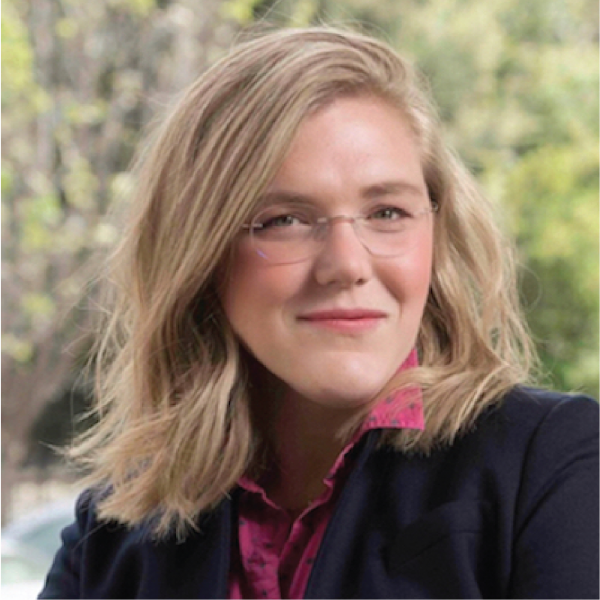 Dr. Elizabeth Smith is a biophysicist and data scientist who is passionate about using data and algorithms to improve lives and make work more efficient. She spent the past five years at a geospatial analytics startup where she applied artificial intelligence / machine learning to build software products from terabytes of satellite imagery. Her postdoctoral fellowship at UCSF and the Advanced Light Source focused on developing novel methods to image, reconstruct, co-align and analyze features within three-dimensional tomographic reconstructions. Dr. Smith has a PhD in biophysics from the University of Wisconsin, Madison, and a bachelors in physics from Pomona College. Primary area of quantitative expertise: Computer Vision; Applied domain: Medical; Data domain: Imaging
Dr. Elizabeth Smith is a biophysicist and data scientist who is passionate about using data and algorithms to improve lives and make work more efficient. She spent the past five years at a geospatial analytics startup where she applied artificial intelligence / machine learning to build software products from terabytes of satellite imagery. Her postdoctoral fellowship at UCSF and the Advanced Light Source focused on developing novel methods to image, reconstruct, co-align and analyze features within three-dimensional tomographic reconstructions. Dr. Smith has a PhD in biophysics from the University of Wisconsin, Madison, and a bachelors in physics from Pomona College. Primary area of quantitative expertise: Computer Vision; Applied domain: Medical; Data domain: Imaging
 Dr. Mithra Vankipuram is a multidisciplinary research engineer and product developer. Beyond supporting research operations and engineering efforts, Mithra specializes in agile UX research to generate actionable, data-driven insights for all stages of product development. She extends her contributions by offering a breadth of knowledge in patent portfolio development, team collaboration, and process improvement. She believes how we get work done is as important as the work itself. Mithra is also an organizational psychology enthusiast, comedic improviser, and an advocate for diversity and inclusion. She leverages her collective experience to deliver results in pursuit of her passion - developing equitable products and solutions that positively impact people, their communities, and our planet. Primary area of quantitative expertise: Statistics; Applied domain: Business; Data domain: Text
Dr. Mithra Vankipuram is a multidisciplinary research engineer and product developer. Beyond supporting research operations and engineering efforts, Mithra specializes in agile UX research to generate actionable, data-driven insights for all stages of product development. She extends her contributions by offering a breadth of knowledge in patent portfolio development, team collaboration, and process improvement. She believes how we get work done is as important as the work itself. Mithra is also an organizational psychology enthusiast, comedic improviser, and an advocate for diversity and inclusion. She leverages her collective experience to deliver results in pursuit of her passion - developing equitable products and solutions that positively impact people, their communities, and our planet. Primary area of quantitative expertise: Statistics; Applied domain: Business; Data domain: Text
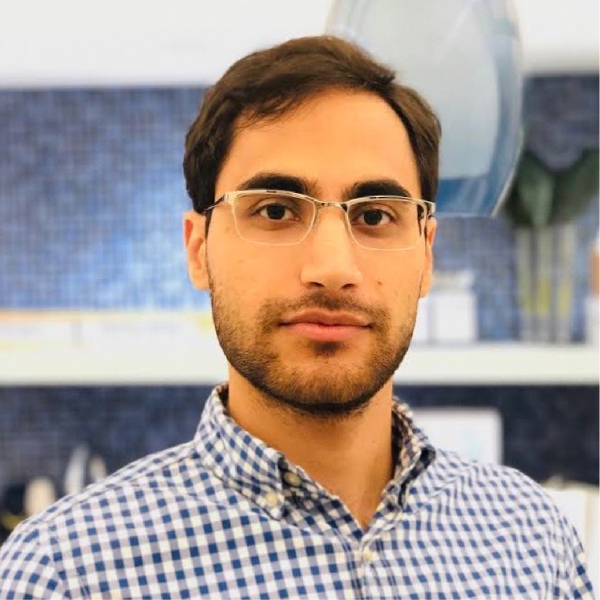 Dr. Reza Eghbali is a member of the machine learning and security team at Cisco Tetration Analytics, where he develops and implements online learning algorithms for detecting network security threats in real-time. Reza was a Simons Institute Research Fellow at UC Berkeley in the 2017-18 academic year, where he visited the institute for the programs on “Bridging Continuous and Discrete Optimization” and “Brain and Computation”. Reza holds a Ph.D. in Electrical Engineering and a Master’s degree in Mathematics from the University of Washington, Seattle. He received his B.Sc. in Electrical Engineering from Sharif University of Technology, Tehran. His research interest lies in the areas of optimization algorithms, machine learning, and computational neuroscience. Primary area of quantitative expertise: Machine/Deep Learning; Applied domain: Network Security; Data domain: Machine generated big data
Dr. Reza Eghbali is a member of the machine learning and security team at Cisco Tetration Analytics, where he develops and implements online learning algorithms for detecting network security threats in real-time. Reza was a Simons Institute Research Fellow at UC Berkeley in the 2017-18 academic year, where he visited the institute for the programs on “Bridging Continuous and Discrete Optimization” and “Brain and Computation”. Reza holds a Ph.D. in Electrical Engineering and a Master’s degree in Mathematics from the University of Washington, Seattle. He received his B.Sc. in Electrical Engineering from Sharif University of Technology, Tehran. His research interest lies in the areas of optimization algorithms, machine learning, and computational neuroscience. Primary area of quantitative expertise: Machine/Deep Learning; Applied domain: Network Security; Data domain: Machine generated big data
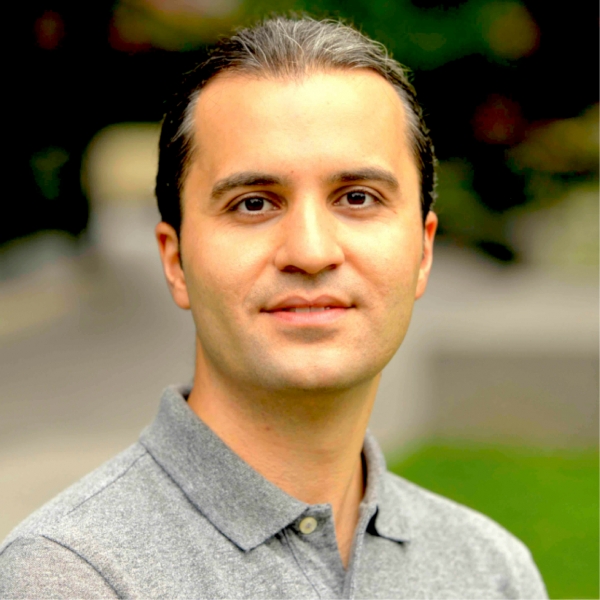 Dr. Saeed Seyyedi holds a PhD in Computer Science from Technical University of Munich where he was a recipient of an E.U. Marie Curie research fellowship supporting his research and studies in medical imaging and informatics. He completed a postdoc in AI in medicine at Stanford University where he developed applications of machine learning and computer vision to detect and characterize cancer using medical images and other types of records. Before joining this program, he has worked and collaborated with a variety of interdisciplinary research and development groups including AstraZeneca, BC Cancer Research Center, GE GRC and Johns Hopkins University. Dr. Seyyedi is passionate about building large-scale AI solutions in healthcare, image analysis, and advanced machine learning techniques. Primary area of quantitative expertise: Machine/Deep Learning; Applied domain: Medical; Data domain: Imaging
Dr. Saeed Seyyedi holds a PhD in Computer Science from Technical University of Munich where he was a recipient of an E.U. Marie Curie research fellowship supporting his research and studies in medical imaging and informatics. He completed a postdoc in AI in medicine at Stanford University where he developed applications of machine learning and computer vision to detect and characterize cancer using medical images and other types of records. Before joining this program, he has worked and collaborated with a variety of interdisciplinary research and development groups including AstraZeneca, BC Cancer Research Center, GE GRC and Johns Hopkins University. Dr. Seyyedi is passionate about building large-scale AI solutions in healthcare, image analysis, and advanced machine learning techniques. Primary area of quantitative expertise: Machine/Deep Learning; Applied domain: Medical; Data domain: Imaging





